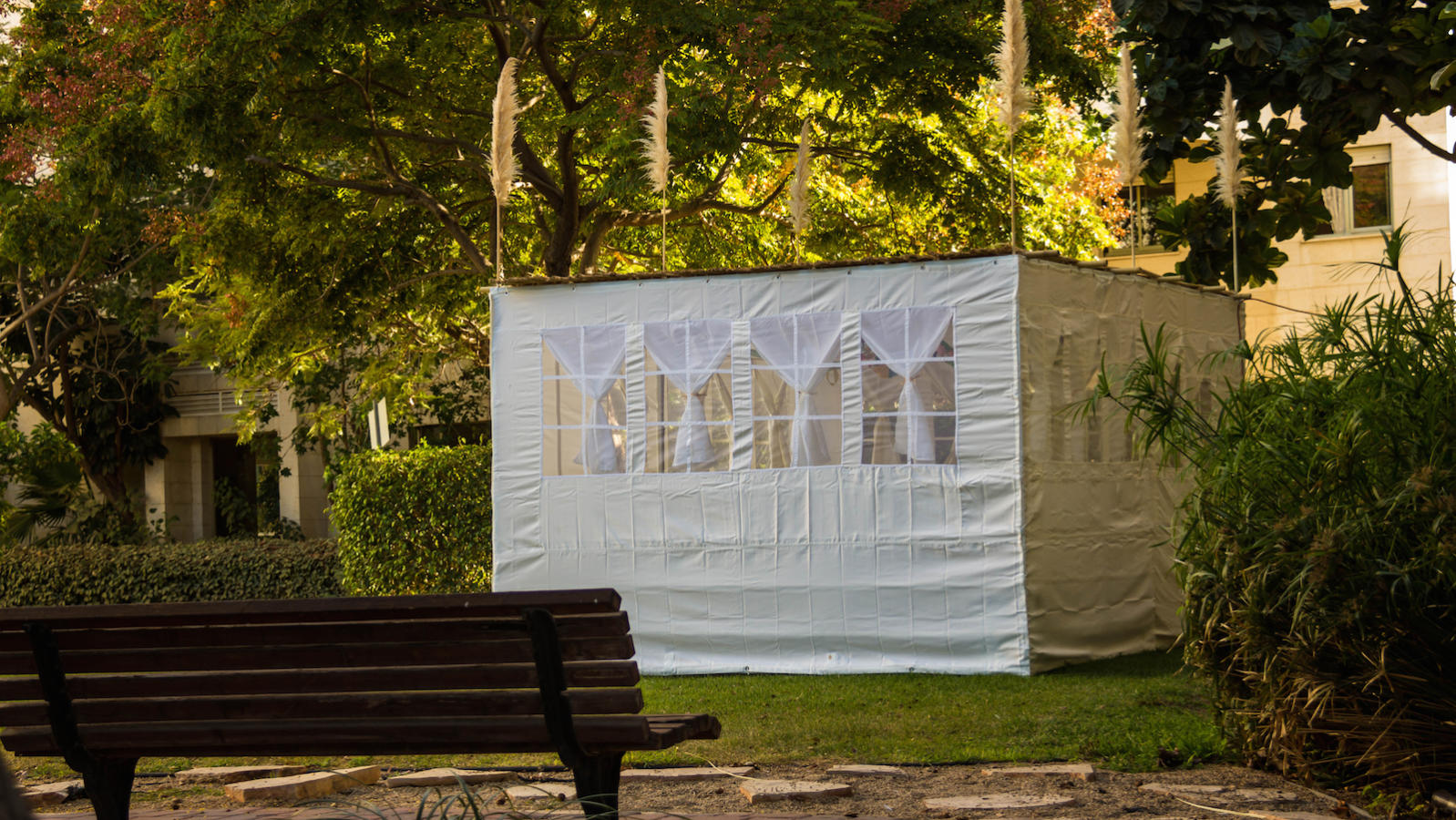Sukkot is a holiday of paradoxes: We erect a building to mark the holiday of journey; it is the last in the pilgrimage holiday cycle but comes first, after Rosh Hashanah; and we leave the sturdy shelter of our homes for the flimsy shelter of the sukkah (singular of sukkot) just as the weather is turning colder (in much of the Northern Hemisphere) and rainy (in Israel).
Those paradoxes combine to pose the question, Where is the true shelter in our lives? Is it in the human constructs of bricks and mortar, in the security of walls of wood and locks of steel? Is it found in the consistency of our thinking? In filtering things out? In not letting other things in? In knowing which is which?
Most days of our lives we find a measure of security in our walls and our bricks and our boundaries. “Good fences make good neighbors.” And that security–as God learned in the desert–is essential to our well-being. And yet, there are times when our ordinary world meets extraordinary challenges, when our boundaries are penetrated and our fences fail.
What then? What will comfort us in the presence of dangers that walls cannot repel: the dread of illness and loss, the pain of shame and uncertainty, the shadow of hopelessness or despair, the fear of failure, the struggles with aging?
With your help, My Jewish Learning can provide endless opportunities for learning, connection and discovery.
Sukkot reminds us that ultimate security is found not within the walls of our home but in the presence of God and one another. Indeed, there is a Midrash that says that sukkot are not buildings at all but the glory of God. This holiday helps us understand that sometimes the walls we build to protect us serve instead to divide us, cut us off, lock us in.
The walls of our sukkot may make us vulnerable, but they make us available, too, to receive the kindness and the support of one another, to hear when another calls out in need, to poke our heads in to see whether anybody is up for a chat and a cup of coffee. In contrast, our walls of concrete and steel can enslave us in our own solitude and loneliness. Sukkot reminds us that freedom is enjoyed best not when we are hidden away behind our locked doors but rather when we are able to open our homes and our hearts to one another.
This excerpt is reprinted with permission from The Tapestry of Jewish Time: A Spiritual Guide to Holidays and Lifecycle Events (Behrman House).
etrog
Pronounced: ETT-rahg, Origin: Hebrew, a citron, or large yellow citrus fruit that is one of four species (the others are willow, myrtle and palm) shaken together as a ritual during the holiday of Sukkot.
lulav
Pronounced: LOO-lahv (oo as in boo), Origin: Hebrew, a bundle of branches representing three species -- willow, myrtle and palm -- which are shaken together with the etrog on Sukkot.
sukkah
Pronounced: SOO-kah (oo as in book) or sue-KAH, Origin: Hebrew, the temporary hut built during the Harvest holiday of Sukkot.
Sukkot
Pronounced: sue-KOTE, or SOOH-kuss (oo as in book), Origin: Hebrew, a harvest festival in which Jews eat inside temporary huts, falls in the Jewish month of Tishrei, which usually coincides with September or October.
Midrash
Pronounced: MIDD-rash, Origin: Hebrew, the process of interpretation by which the rabbis filled in “gaps” found in the Torah.



